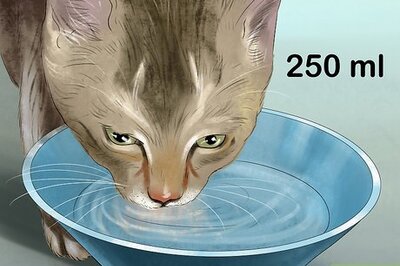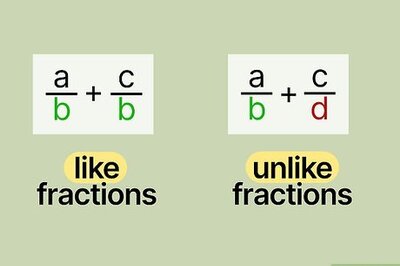
views
The Supreme Court (SC) recently set aside conviction of a man, who was accused abetting suicide of a woman by threatening to kill her family, if she refused to marry him, based on glaring omissions in the prosecution case.
“In a case of death by poisoning, be it homicidal or suicidal and which is based on circumstantial evidence, recovery of the trace of poison consumed by or administered to the deceased is of critical importance. It forms a part of the chain; rather it would complete the chain to prove homicide or suicide,” a bench of Justices Bela M Trivedi and Ujjal Bhuyan said.
The court said the prosecution has failed to prove the charge of abetment to suicide against the appellant Kumar alias Shiva Kumar.
“We do not find any evidence on the basis of which we can hold the appellant guilty of abetting the suicide of the deceased. While the death of a young woman is certainly very tragic, it cannot be said with any degree of certainty that suicide has been proved; the other essential ingredient constituting the offence under Section 306 IPC, viz, abetment cannot also be said to have been proved,” the bench said.
The court also pointed out that human mind is an enigma and it is well neigh impossible to unravel the mystery of the human mind. “There can be myriad reasons for a man or a woman to commit or attempt to commit suicide: it may be a case of failure to achieve academic excellence, oppressive environment in college or hostel, particularly for students belonging to the marginalized sections, joblessness, financial difficulties, disappointment in love or marriage, acute or chronic ailments, depression, so on and so forth. Therefore, it may not always be the case that someone has to abet commission of suicide. Circumstances surrounding the deceased in which he finds himself are relevant,” the bench said.
It was alleged that the appellant had on July 5, 2000, teased the deceased to marry him or he would kill her family members. The girl, a final year B Com student, consumed poison after informing the family members about the incident and died on July 6, 2000, in a hospital.
In the case, the court, however, found there were glaring contradictions and omissions in the conduct of the father of the victim who reached the hospital 24 hours after the incident.
Citing the Supreme Court judgment in ‘M Mohan Versus State’ (2011), the bench said that it was concluded that in order to convict a person under Section 306 IPC there has to be a clear mens rea to commit the offence. It would also require an active act or direct act which led the deceased to commit suicide seeing no other option and that this act of the accused must have been intended to push the deceased into such a position that he committed suicide.
The court also pointed out that in case of death due to consumption or administering of poison or insecticide or pesticide, be it homicidal or suicidal, recovery of the trace of such poison or insecticide or pesticide is crucial.
The post-mortem examination report here indicated multiple injection marks over the front of both the elbows of the deceased. It was concluded that the death of the deceased was due to respiratory failure as a result of consumption of substance containing organophosphate compound, a pesticide, the court noted.
The doctors who had treated the deceased in the first nursing home and later on in the Mission Hospital, were not examined by the police. They were also not summoned as court witnesses. Their testimony could have been crucial. They could have thrown light into the nature of intake of the organophosphate compound, it said.
“This serious lacuna is further compounded by the fact that the prosecution had failed to recover any syringe or needle from the crime scene. No container or bottle containing the pesticide were also recovered from the room where the deceased was found lying on the floor or in any part of the house. There is no evidence to suggest that police had made an endeavour to search for such container or bottle,” the bench said.
Further, the bench pointed out that if she had orally consumed the poison, then also the bottle or the container of the poison would have been present in the crime scene or near about. There is absolutely no evidence in this regard. There is also no evidence to show as to how the deceased had acquired the pesticide.
“If the prosecution case is to be believed, then the syringe and the needle or the container must have been present in the scene of occurrence itself. Those were not found by the prosecution. Neither any trace of pesticide was seen by the investigating officer in the room. The FSL report as well as the chemical analysis report are silent as to whether any trace of the pesticide was detected from any of the seized articles. Prosecution is silent as to why no investigation was done in this regard,” the bench said.




















Comments
0 comment